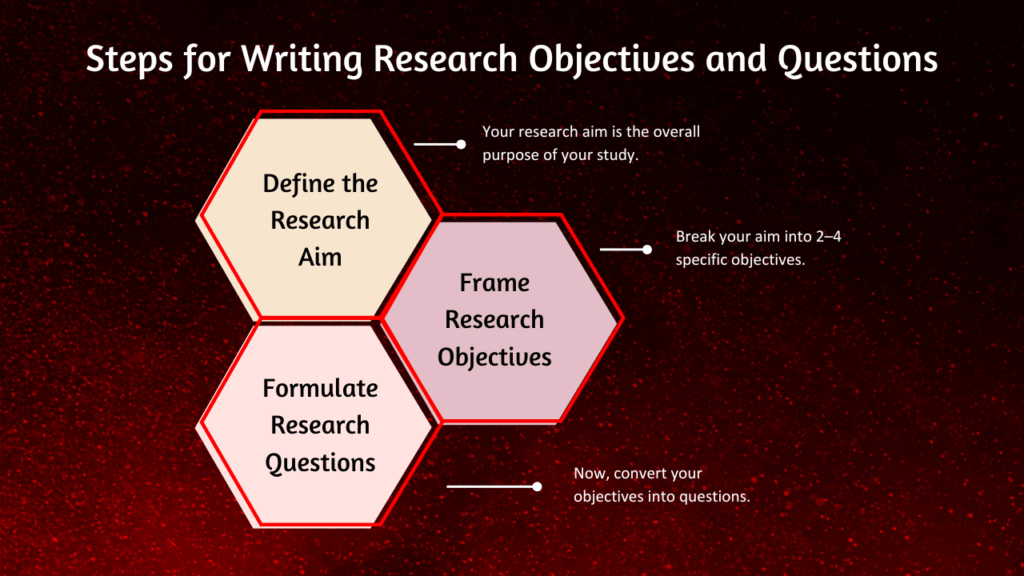05Aug

Framing research objectives and questions is the most crucial step in setting a strong foundation for any academic project, whether it’s a thesis, dissertation, or scholarly article. Without clearly defined objectives and well-crafted questions, your research can quickly become unfocused and ineffective. These two elements determine your study’s direction, methodology, and overall success.
In this guide, we will explore the importance of framing research objectives and questions, how they differ, and how you can align them strategically to build a compelling research framework. Whether you’re a postgraduate student or a PhD scholar, mastering this process will give your research clarity, purpose, and structure right from the beginning.
Before writing anything, it’s important to know the difference between research objectives and questions.
Whether you’re into qualitative research, quantitative research, or a mixed-methods approach, both objectives and questions must reflect your research aim clearly.

Your research aim is the overall purpose of your study. It gives direction to both your research objectives and research questions in the thesis.
Break your aim into 2–4 specific objectives. Use action verbs like analyze, evaluate, explore, develop, etc. These research objectives examples might help:
Now, convert your objectives into questions. Here are some examples:
This step-by-step guide to framing research questions ensures your entire research stays focused.
Here are a few solid examples of good research objectives for a thesis:
Make sure each objective contributes directly to your main research question.
A common issue among students is writing objectives and questions that don’t sync. Here’s how to align research objectives with research questions:
Avoid these pitfalls:
Understanding these common mistakes when framing research objectives will save time during your thesis development and ensure your research remains strong.
Use the SMART rule:
Knowing how to formulate SMART research objectives helps create a roadmap for your research planning.

If you’re working on a thesis or dissertation, strong research questions and objectives shape your chapters and justify your chosen research design. From problem statement to conclusion, everything connects back to your core objectives.
Good objectives and questions:
Whether you’re new to higher education or pursuing a PhD, mastering this skill is crucial.
Now that you know how to frame research objectives and questions, you’re ready to start your research on the right foot. Define your aim, break it into clear objectives, and formulate focused questions. Avoid common mistakes and follow the SMART format to stay on track.
Remember, great research begins with great planning—and that starts with framing the right objectives and questions.

The journey of navigating the PhD publication process and getting your research published can often feel like navigating a... read more

Rejection is a silent companion throughout your PhD journey. From declined journal submissions and fellowship denials to critical supervisor... read more
Protests erupt as Delhi University raises PhD programme fees by 1,100%- Kenfra University of Delhi: Delhi University, officially known as the University... read more

Choosing the right PhD topic selection in CSE (Computer Science and Engineering) is one of the toughest and most important... read more
the Doctoral Entrance Test (DET) or any updates beyond September 2021. However, I can provide some general guidance on how... read more

Presenting PhD research effectively is a critical skill that can shape your academic and professional success. Whether it's at... read more

Publication Requirements for PhD Programs in India How Many Publications Are Required to Get a PhD in India?Pursuing a... read more

If you’re planning to start your PhD journey in 2026, this is the perfect time to explore the best and... read more
WhatsApp us
Leave a Reply